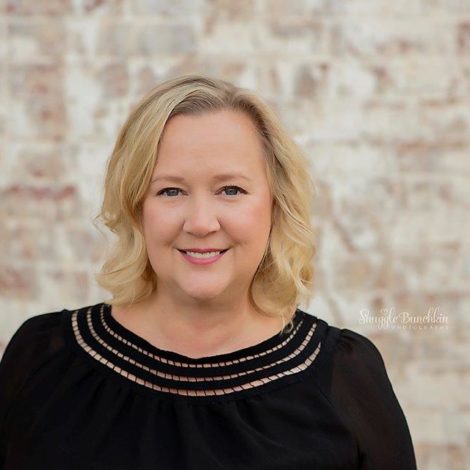The 2020 hurricane season was one for the books. From ferocious storms battering the Gulf Coast to heavy rains inundating the Florida Panhandle, the Atlantic saw an unprecedented amount of activity this year.
The Weather Channel reported that this season, 22 out of the 25 named storms in the Atlantic through October 5 had their earliest formation date on record, based on their letter identifier. Arthur, Bertha and Dolly (storms A, B and D) were the only storms represented in the list of names that did not have a record early formation date. Plus, in September 2020 — typically hurricane season’s busiest month — three storms formed in the Atlantic on a single day (Sept. 18), something that hasn’t occurred since 1893.
Even storms that weren’t as strong as predicted levied significant damage upon making landfall. For example, Hurricane Sally, which was expected to bring record-breaking amounts of rain to Alabama and the Florida Panhandle, sustained up to six feet of storm surge in Pensacola, the third-highest level in recorded history.
As we look to 2021, there are many lessons to be learned from this year’s hurricane season. Here are key considerations insurance agents and brokers should share with their Florida-based and other hurricane-prone homeowner’s clients as they prepare for future storms.
Navigating Storm Damage in a Post-Pandemic World
This hurricane season, COVID-19 upped the ante, impacting everything from how homeowners prepared to how they repaired damage.
In some early cases, pandemic-related supply chain disruptions left homeowners scrambling to acquire backup generators or stormproof their property. Even in light of these obstacles, many insurance carriers worked tirelessly to ensure that COVID-19 wouldn’t make hurricane season more challenging for their clients — especially when it came to the claims process.
Fortunately, many carriers are now able to be on-the-ground and in-person to help assess damage from the most recent hurricanes. However, earlier in the hurricane season, many communities were still under strict lockdown orders due to COVID-19, and certain carriers, such as Chubb, expanded their digital services to offer remote inspections following hurricanes. These alternate services were particularly helpful for clients who preferred a virtual experience in light of social distancing guidelines.
Leveraging satellite images, drone technology, virtual services and other digital means, these insurers were able to efficiently assess damage without working on-site. In some cases, these virtual inspections also allowed carriers to begin the adjusting process even before on-site access was allowed by local officials — so homeowners could potentially begin the repair process sooner and help prevent additional damage from accumulating.
These virtual insurance inspection capabilities are here to stay, and agents and brokers should encourage Florida-based and other hurricane-prone clients to seek out a carrier that has successfully introduced a seamless virtual claims option. Even when social distancing is a measure of the past, working with a carrier that has these digital tools in their arsenal can help reduce adjustment delays and speed up the repair process.
Planning Today to Help Clients Prepare for Tomorrow
The pandemic aside, there are many factors agents and brokers should discuss with their Florida-based homeowner’s clients when it comes to preparing for future storms. As they reflect on this year’s storm season, agents and brokers should help their clients identify any gaps in their home protection strategy.
If clients experienced wind or water damage over the past few months, what can they do to prevent additional occurrences? Even if clients were lucky enough to escape this season relatively unscathed, what risk mitigation tactics can they implement to make their homes less vulnerable in the future? For example, many clients might benefit from a gas-powered back-up generator that could power appliances in the event of a prolonged outage.
Additionally, to help prevent future damage, agents and brokers should remind clients to implement appropriate storm-proofing best practices, such as:
- Installing impact-resistant storm shutters on windows, doors and skylights
- Sealing the seams and joints of roof decks with deck tape to prevent water intrusion • Building entry doors made of solid wood or hollow metal that have a minimum of three hinges and a deadbolt that fully secures into the doorjamb
- Installing a roof covering that can sustain high winds, as well as building code-approved hurricane straps that connect the roof to the tops of the walls
- Using a garage door that is impact-resistant or reinforced to withstand high winds
- Though some of these might seem like minor adjustments, they can have a significant impact on property protection. Even if not required by building codes, these investments can be well worth continued from page 4 it and cost homeowners far less than repairing storm-related damage.
Looking Ahead to 2021
As clients continue grappling with the pandemic, it is easy for hurricane safety to take a backseat. The reality is that the next storm season isn’t as far away as it may seem. Now is the time for insurance agents and brokers to help their clients learn from the weather events of 2020 and make decisions that will help ensure they are protected from storm damage for years to come.
When it comes to hurricanes, it’s never too late to improve one’s risk mitigation strategy, and it’s never too early to start preparing.
Was this article valuable?
Here are more articles you may enjoy.


 Undercover St. Louis Officer Beaten by Colleagues Awarded $23.5M
Undercover St. Louis Officer Beaten by Colleagues Awarded $23.5M  Harvard Study Again Stirs the Pot on Demotech Ratings of Florida Carriers
Harvard Study Again Stirs the Pot on Demotech Ratings of Florida Carriers  Supreme Court Makes It Easier to Sue for Job Discrimination
Supreme Court Makes It Easier to Sue for Job Discrimination  Coral Gables, Florida Tops Beverly Hills as Ritziest Home Market in US
Coral Gables, Florida Tops Beverly Hills as Ritziest Home Market in US 


